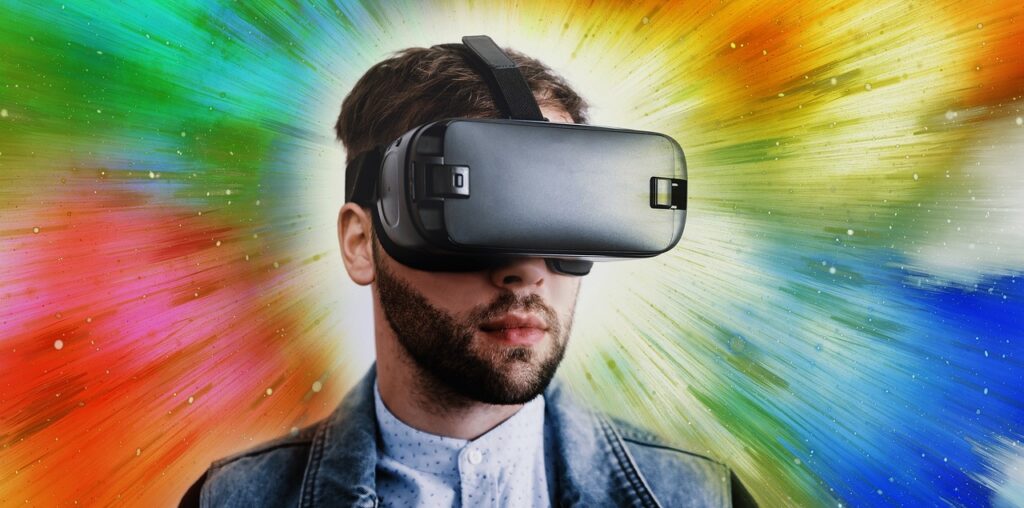As we stand at the threshold of the future, we find ourselves surrounded by a rapidly evolving digital landscape. The digital world has become an integral part of our lives, reshaping the way we communicate, connect, and experience the world around us. In this chapter, we will explore the exciting possibilities and potential that emerging technologies hold for faith-based contexts, envision new ways to connect with God through technology, and reflect on the role of technology in shaping the future of religious landscapes.
Emerging Technologies and Their Potential in Faith-Based Contexts
- Virtual Reality (VR) and Augmented Reality (AR): VR and AR technologies have the potential to create immersive and transformative experiences within faith-based contexts. Imagine being able to virtually walk through ancient biblical sites, participate in virtual pilgrimages, or even attend virtual worship services with believers from around the world.
- Artificial Intelligence (AI): AI has already begun to impact faith-based contexts through AI-powered spiritual coaching, personalized prayer apps, and chatbots that provide guidance based on religious texts. As AI continues to advance, it may offer more sophisticated and tailored spiritual support, helping individuals navigate their faith journeys with greater insight and understanding.
- Internet of Things (IoT): The IoT connects physical devices and objects to the internet, enabling them to interact and share data. In a faith-based context, IoT could enhance worship experiences by integrating smart devices, such as lighting, sound systems, and environmental controls, to create immersive and meaningful worship environments.
Imagining New Ways to Connect with God through Technology
- Virtual Reality Worship Experiences: Imagine being able to put on a VR headset and step into a virtual sanctuary, where you can join in worship, engage in communal prayer, and listen to sermons from faith leaders around the world. Virtual reality could transport us beyond the limitations of physical distance, allowing us to worship together in a virtual space.
- Haptic Technology for Worship: Haptic technology provides tactile feedback and sensations. In a future scenario, individuals could wear haptic-enabled wearables during worship, allowing them to feel the vibrations of music, experience the touch of a virtual hand during prayer, or sense the presence of God through haptic feedback.
- Personalized Spiritual Journeys: With the power of AI and machine learning, technology could offer personalized spiritual journeys tailored to individual needs and preferences. Imagine a virtual spiritual guide that understands your unique spiritual journey, provides guidance, offers relevant scripture passages, and connects you with like-minded believers on similar paths.
The Role of Technology in Shaping Future Religious Landscapes
- Global Connectivity and Interfaith Dialogue: Technology has the potential to break down barriers of geography and language, connecting people of different faith traditions and fostering interfaith dialogue. Online platforms and social media can facilitate conversations, promote understanding, and build bridges between diverse religious communities.
- Accessible Faith Education and Resources: Technology can make faith education and resources more accessible to people around the world. Online courses, digital libraries of religious texts, and interactive study materials can provide individuals with the opportunity to deepen their knowledge and understanding of their faith traditions.
- Digital Spiritual Communities: As technology continues to evolve, it may enable the development of digital spiritual communities that transcend physical boundaries. These communities could offer virtual fellowship, support, and shared worship experiences, fostering a sense of belonging and connection for those who may not have access to local faith communities.
In contemplating the future of God’s presence in the digital world, we must approach these possibilities with discernment, humility, and a deep reverence for our faith. Technology is not a replacement for the intimate relationship we have with God, but rather a tool that can amplify our experiences and foster connections. As we navigate the future, we must remain rooted in the foundational teachings of our faith, ensuring that technology is used in ways that align with our values and promote spiritual growth, community building, and the pursuit of justice and love.
In this exciting era of technological advancement, let us seek God’s guidance and wisdom as we embrace the potential of emerging technologies. Let us envision new ways to connect with God, while remaining steadfast in our commitment to the timeless truths and teachings of our faith. May the future be one where technology serves as a conduit for experiencing the divine, fostering unity, and empowering believers to be a light in the digital world.
May God’s presence continue to guide us on this journey of faith, both in the physical and digital realms.
Top Image by Gerd Altmann from Pixabay

